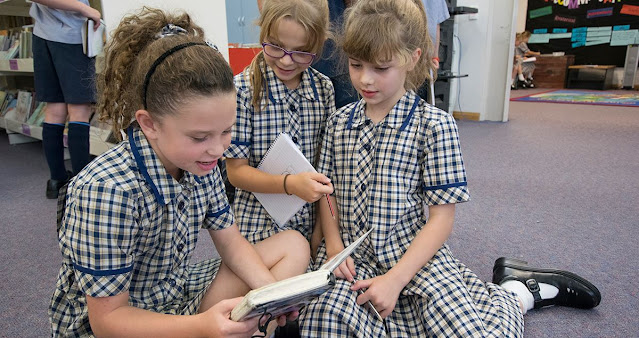Motivating Student Writers
I am frequently asked, How do you motivate kids to write? This has set me to thinking. What is it about certain classrooms that sets them apart? When you enter a classroom where there is a palpable energy around writing, and the teaching is mindful and purposeful, certain elements are apparent. Intrinsic reward is coming from experiencing all that writing has to offer and a sense of community and trust is thrives in such places. Brave writers exist here. To create such a high level of engagement the foundations have been securely set down. The motivation to write has been underpinned by the presence of the following:
Student know the WHAT and the WHY of WRITING
Explaining the purpose of writing to students is a necessity so young writers understand what it is they are doing and why. As the most proficient writer in the room, a teacher must provide avenues by which good writing can occur. The effective writing teacher willingly shares what they know about writing, so students gain insights about the writing life.
A consistent, recursive structure for writing exists:
- Pre-write, talk, draw, brainstorm, plan new ideas.
- Develop a first draft.
- Revise to improve content.
- Edit for spelling, grammar, punctuation
- Publish/share/reflect
Sharing is Encouraged
Share examples of your own writing. Include rough drafts, revisions, and final copies. It is important for students to see that everyone goes through the writing process, receives feedback from others, and makes changes in an effort to improve the end product. Ensure students are given an opportunity to share their final pieces of work with the class and receive positive feedback from the audience. If a school recognizes the importance of writing, so will the students.
Empathy is Apparent
Spend some time thinking about how difficult and frustrating it can be to try to learn what you’re teaching. Let your students know that you understand the difficulty of what you’re asking them to do. Let your students see that you empathize with them and support them.
Spend some time thinking about how difficult and frustrating it can be to try to learn what you’re teaching. Let your students know that you understand the difficulty of what you’re asking them to do. Let your students see that you empathize with them and support them.
Questions Are Valued
Many times students do not put all of their supporting ideas/details on the page, so what appear to be big gaps in the writing piece (to a reader) may not appear as big gaps to the inexperienced writer. Asking questions rather than telling students what to write is beneficial in the revision stage.
Acceptance of Differences and Variations is the norm
Accept different forms of writing on the same topic. If the writer wishes to write about ants, acceptable writing forms might include reports, poems, stories, plays, or songs. A variety of genres keeps intrinsic motivation high.
Celebration of effort is valued
Celebrate all efforts, especially those of struggling writers. Find something good in students' writing, and after getting permission from the author, share it with his or her peers. With student writing, to celebrate is to motivate. A published student writer becomes a motivated student writer. Students are motivated to write when good writing is recognized.
Encouragement of Collaboration Exists
Partner writing can produce better results than two people writing separately if the expectation is that both writers will be held to a higher quality standard than they would be if they wrote alone.
Curiosity and Wonder Abound
Develop writing experiences around real-life events. Create invitations with the vital ‘Who? What? Where? When? Why?’ when framing discussion around possible writing ideas. Part of the role we have as teachers of writing is to create curiosity and wonder.
Reflection is an Expectation
Bring someone or something to class. After interviewing a person or studying something, ask students to write what they learned from the experience. Request that students make connections between what was known prior to the experience and what was learned. Ask them how their thinking changed since learning something new. The stirrings of the meta-cognitive writer begin here.
Bring someone or something to class. After interviewing a person or studying something, ask students to write what they learned from the experience. Request that students make connections between what was known prior to the experience and what was learned. Ask them how their thinking changed since learning something new. The stirrings of the meta-cognitive writer begin here.
Exploration is Welcome
Go somewhere or do something around the school, or beyond. The excitement of new places or circumstances generates inspirational writing. Prepare students for writing about an experience by requesting they bring their writer’s notebook and use their 5 senses to notice details and think about things of interest during the event. Writing should not begin and end at the classroom door.
Connections Are Seen As Vital
Writing can connect kids to their communities and other communities. Kids like to write to other kids. Remain aware that children benefit when parents are part of the writing loop.
Writing can connect kids to their communities and other communities. Kids like to write to other kids. Remain aware that children benefit when parents are part of the writing loop.
Authentic Purposes Underpin All Writing Efforts
Students write best about what concerns them most. Their very own lives should be at the centre of their learning. Young writers need to do real writing. -Writing that is close to their hearts.
I’ll conclude this post on motivation with some pertinent research presented by Steven Wheeler, Plymouth Institute of Education.
Things Innovative Schools Have in Common
- Students are viewed as unique individuals rather than groups
- Schools are connected to the outside world
- Curriculum is delivered in a manner that encourages critical, creative thinking
- Learning spaces are creative in design







Helpful post. You have shared valuable points to ponder and follow. Thank you.
ReplyDelete